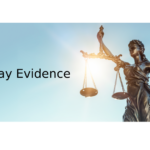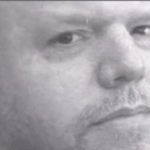Call for Prosecutors not Police to Decide Charges

Anyone who has ever had a matter go to court is aware of the fact that cases often move slowly through the judicial system.
One of the reasons for this is that those accused of crimes are investigated and charged by the police, but are later prosecuted by the NSW Office of the Director of Public Prosecutions (ODPP).
This means that the police determine the relevant charge at the outset, but once the matter is with the ODPP the charges can change, which can lead to delays. In a submission to the NSW Law Reform Commission, NSW Director of Public Prosecutions Lloyd Babb SC has called for prosecutors rather than police to decide on charges for serious offences.
The court process
The court process is by no means swift.
People charged with very serious crimes, such as rape, murder or grievous bodily harm, can have their matters take inappropriately long periods of time before they are resolved either through guilty pleas or by jury trials.
In some cases, defendants are refused bail and have to sit out the time in prison.
Even defendants who are granted bail may be subject to strict conditions, such as curfews and reporting to police stations daily, that place a heavy burden on them.
Currently, it is the police who initially determine the charges against a defendant, based on their investigations.
The matters are then referred to the ODPP for prosecution. Once with the ODPP, a solicitor reviews the evidence, and the charges are often juggled around.
Fresh charges are sometimes laid, charges can be withdrawn, and some charges stand. Inevitably, this can cause lengthy delays to matters progressing through an already slow judicial system – at the expense of defendants’ rights to freedom.
The proposed changes
The NSW Law Reform Commission is currently looking at ways of encouraging early guilty pleas where appropriate.
Early guilty pleas can speed up the court process. In his submission to the commission on early guilty pleas, Mr Babb proposed the setting up of a panel of prosecutors, which would work with police on deciding charges for indictable offences.
Alleged offenders would be granted pre-charge bail rather than police or court bail, and those accused of serious offences such as murder could be held longer to allow police time to consult with the prosecutors before charging offenders.
The brief of evidence would go to prosecutors before charges are laid, and there would be one charging decision made.
Mr Babb said the changes would help to encourage early guilty pleas, reduce delays, and ensure police work swiftly to resolve investigations.
The proposed changes could also remove the possibility of what is often referred to as “over-charging” by the police.
This is where a defendant is charged with a number of offences that could apply, instead of the police considering the overall picture and the relevant offence or offences which ought to take priority.
Experienced defence lawyers often spend extra time at the defendant’s cost negotiating with police on the charges, in order to proceed with the most relevant charge, before advising a defendant to enter a plea.
For example, if someone is involved in a fight outside a pub, uses a knife and a another person is seriously injured as a result, there are a number of charges that could be laid, including wounding with intent, causing grievous bodily harm with intent, assault occasioning actual bodily harm and possession of a prohibited weapon.
An experienced criminal defence lawyer would not normally encourage a plea at this stage until the charges are reduced and the most relevant charge is decided on.
Once with the ODPP, those charges may be reduced to a wounding with intent charge only.
In this example, it can be seen that had the ODPP become involved at the initial charging stage, the matter may have been disposed of faster.
These proposed changes could offer benefits to everyone involved in the court process:
- Defence lawyers could focus their time and efforts on cases more efficiently.
- Prosecutors would no longer have to review the evidence to find the most relevant charges, but could rely on the initial charging process as an accurate representation of the offending.
- Defendants may be spared prison time or onerous bail conditions as their cases move expeditiously through the courts.
- Victims could be spared the emotional burden of delays.
- The judges and courts could use the freed time to focus their efforts on the trial or sentencing process.
- The community ultimately benefits from a system that removes a serious hurdle to cases being disposed of efficiently.
We wait with interest to see the NSW Law Reform Commission’s response to the submission, and the outcomes of the consultation paper on encouraging early guilty pleas.






